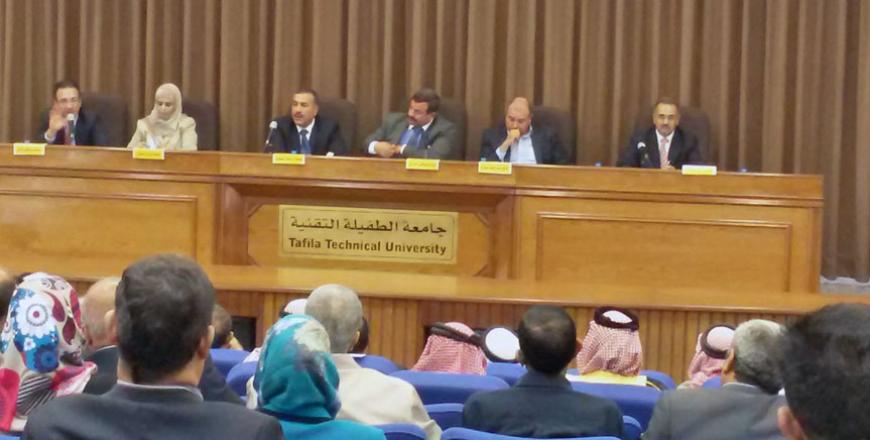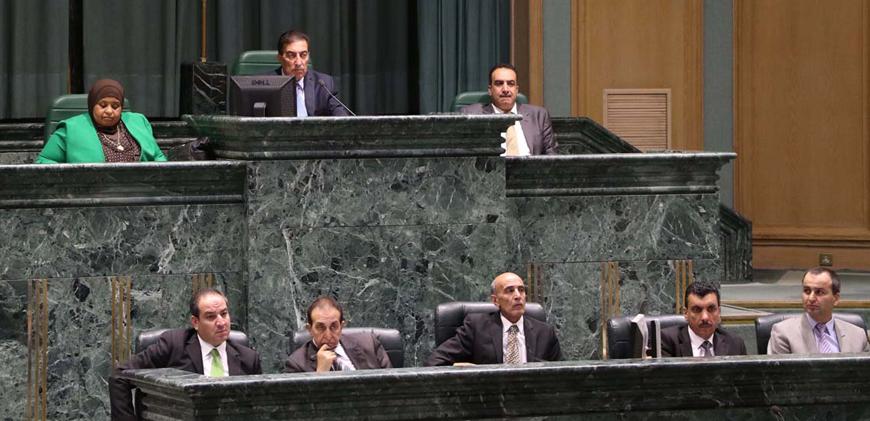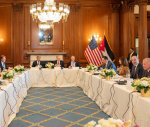You are here
Election bill not likely to be finalised during extraordinary session
By Raed Omari - Sep 11,2015 - Last updated at Sep 11,2015
AMMAN — The 2015 parliamentary elections law is not expected to be finalised during the current extraordinary session, head of the Lower House Legal Committee said Wednesday.
Head of the panel, MP Mustafa Amawi, said that the House will begin its initial deliberation of the draft elections law next Sunday, expecting not less than 60-70 MPs to comment on the keystone reform bill.
“Conventionally, the House will then refer the law to the Legal Committee for examination,” Amawi told The Jordan Times.
A Royal Decree was issued on Monday, adding the 2015 parliamentary elections bill to the agenda of the current extraordinary session.
House Speaker Atef Tarawneh gave the elections law urgency status.
“Once we receive the law, we will hold discussion sessions with all segments of society, including political parties, professional associations, civil society and youth organisations, legal experts, university professors and the media,” Amawi said.
He also explained that the panel will take into consideration all the comments it receives from these stakeholders while reviewing the elections law.
“We will meet these people not to preach them on the law but to listen to their notes and demands. This means that the law will not be completed during the current extraordinary session which ends on September 30 at the latest.”
Expecting a Royal Decree to be issued in the mid-September, proroguing the current extraordinary session, Amawi said, “then the deliberations over the elections bill will be postponed until the ordinary session which constitutionally begins on October 1st or two months after.”
Amawi, who won his seat as a member of the Islamic Centrist Party ticket, said that there are “constitutional reservations” here and there on the new elections law that need to be fixed before it is referred back to the House.
“We will not vote in favour of a law that is not constitutional,” he said.
Acknowledging that the law is a “step forward” on the path of reform, constitutional expert Mohammad Hammouri explained that dividing the Kingdom into electoral districts and defining parliamentary seats should be made clear in the law not in a bylaw issued by the government.
Citing Article 67 of the Constitution, Hammouri explained in a recent opinion piece that the electoral districts and the number of parliamentary seats is a matter that “lies at the heart of citizens’ constitutional rights and, thus, should not be left for the government to decide on”.
“All should be included in the law and nothing should be left for the executive authority,” he concluded.
As worded by the government, Paragraph A of Article 8 of the draft elections reads: “The Kingdom will be divided into electoral districts for which 130 parliamentary seats will be allocated according to a bylaw.”
According to Article 67 of the Constitution: “The Chamber of Deputies shall consist of members elected by secret ballot in a general direct election and in accordance with the provisions of an Electoral Law which shall ensure the following principles: Integrity of the election, the right of candidates to supervise the process of election and the punishment of any person who may adversely influence the will of voters.”
Related Articles
AMMAN — While constitutional experts were criticising the 2015 draft parliamentary elections law as replete with “constitutional flaws”, the
AMMAN — MPs were divided on Sunday over the 2015 parliamentary elections bill with some calling for sending it back to the government, while
AMMAN — A Royal Decree was issued on Monday adding the 2015 parliamentary elections bill and an amended version of the army officers’ servic
















